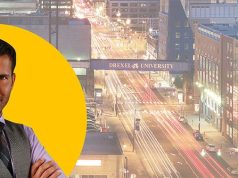A good engineer must be a perfectionist. A good engineer must also expand their knowledge, even if it appears that its baggage is already impressive as it is. This is what Alexander Zrazhevskiy, a senior mechanic from Russia, says. For many years, he has been working at a subsidiary of Frito Lay, which is part of the PepsiCo American corporation holding. We talked with Alexander about the intricacies of his profession, the developments he authored, and the prospects of working overseas.
– Alexander, do you remember your first visit to a major production facility? What was it like?
– In fact, my first time was back when I was a child. My grandfather used to work at the Novocherkassk brewery. By the way, he was an engineer, too. He would take me with him and made me a tour, and then, he always treated me to fresh lemonade. I still remember the taste. Then, I visited large enterprises already at a more mature age – during my student internship, when I was a student at the Platov South-Russian Polytechnic University. We would visit enterprises in Rostov Region all the time to get to know the manufacturing processes.
– Can you recollect what impressed you the most then?
– Obviously, the scale of production, its speed. But, perhaps, what impressed me most was the fact that lines were fully automated. The person simply controlled the process with virtually no human interference. All the work was done by machines. Certainly, you can’t do without automation, but any equipment required careful control at some point. You still need people anyway. Therefore, over time, I started paying more attention to how people apply their knowledge and experience, how they address various challenges during production processes.
– And there are many challenges, aren’t there?
– First, there are really so many of them. Second, they often require non-standard solutions. This is why it is so important for an engineer to have a creative mind. If he lacks this quality, it will be very complicated to achieve great triumphs in the profession. During my time at Frito Lay Manufacturing, I have implemented nearly two dozen of my own projects. Upgrades to a sifter, cutter, modular elevators, developed shock-resistant funnels and implemented them into the manufacturing process. I had to handle challenges of all types. For example, hard water clogged the barrel cooling channel on the extruder. What should we do? The easiest and probably the most expensive way is to replace the barrels. But what if we eliminate the possibility of this breakdown in the future? This is where that same creative thinking comes into play. As a result, I implemented a channel cleaning project and helped my plant save $30,000 a year.
– New developments require new knowledge. Where did you get it from?
– First of all, from books. There is a lot of professional literature, which is readily accessible. I read a lot, attended webinars, immersed myself in the topic as much as possible. As part of one of my projects, I had to study additive technologies and 3D printing in detail. This is a very promising sector now. In Russia, it is only starting to develop.
– I wanted to talk about your scientific articles. How did you start publishing and how difficult this process was?
– As I said, I plunged into additive technologies to bring my projects to life. At some point, I started understanding that there is so much knowledge that I should at least structure it, or even better – share it with others. So, I started writing article by article. Currently, I have about 15 articles both in Russian and international publications. Yes, the requirements for international articles are higher, but that’s why I started pursuing science first at the Russian level to get the hang of it and then go international. In both cases, everything went smoothly.
– Did you ever want to teach?
– Honestly, no. Although I had such an opportunity when studying at the university, the dean offered me to stay at the department. In fact, it was a direct path to teaching, but I realized that I wanted something else. It was much more interesting for me to know my way around new equipment, the intricacies of production processes. So, I never regretted not becoming a teacher. I think my scientific articles are enough. By the way, last year, I co-authored a textbook on transportation, installation and organization of the safe operation of transport and technological machines and equipment. These resources are used today not only in the educational but also in the manufacturing process at Russian and foreign enterprises. For instance, at the Egyptian Belmach for import and trade. The company has adopted the security concepts that were described in my manual. I am referring to the transportation of tractors, as well as spare parts for them, including stages of loading and unloading.
– What do you think, can you call an exchange of experience with colleagues an educational process?
– Definitely. The main thing is that this process is two-sided. I am always ready to share my professional experience with colleagues, but I also want to learn from their experience. Engineers work in different industries, it is a very versatile profession. The experience here is one of the keys to career success.
It is for this reason that I became a member of the club of the American Society of Mechanical Engineers. I learned about its existence from my foreign colleagues. But this is not just about experience exchange. If you wish, you can get the mentor status. This is a community within the society, where everyone can ask for help in solving any professional problem. I have a mentor status, so I am always happy to help my fellow engineers. And it doesn’t matter what sector they work in. If I have enough competence, I will always give advice.






